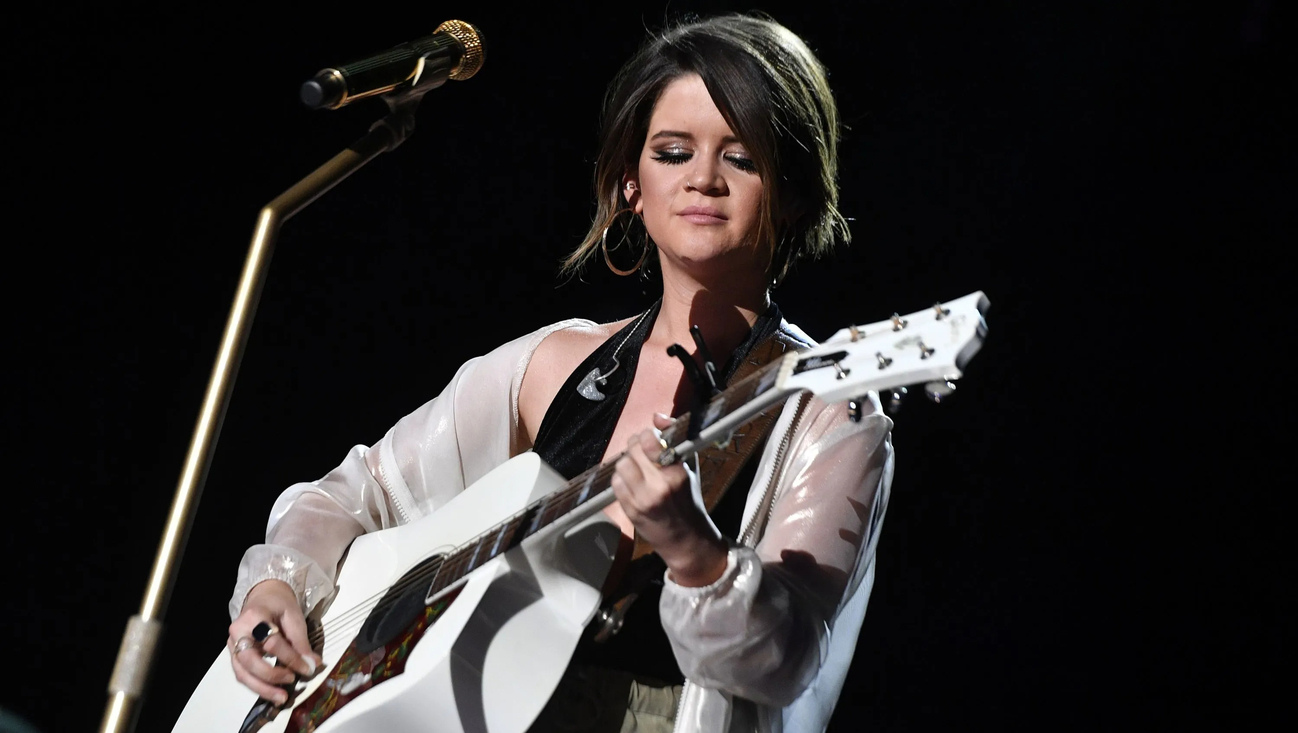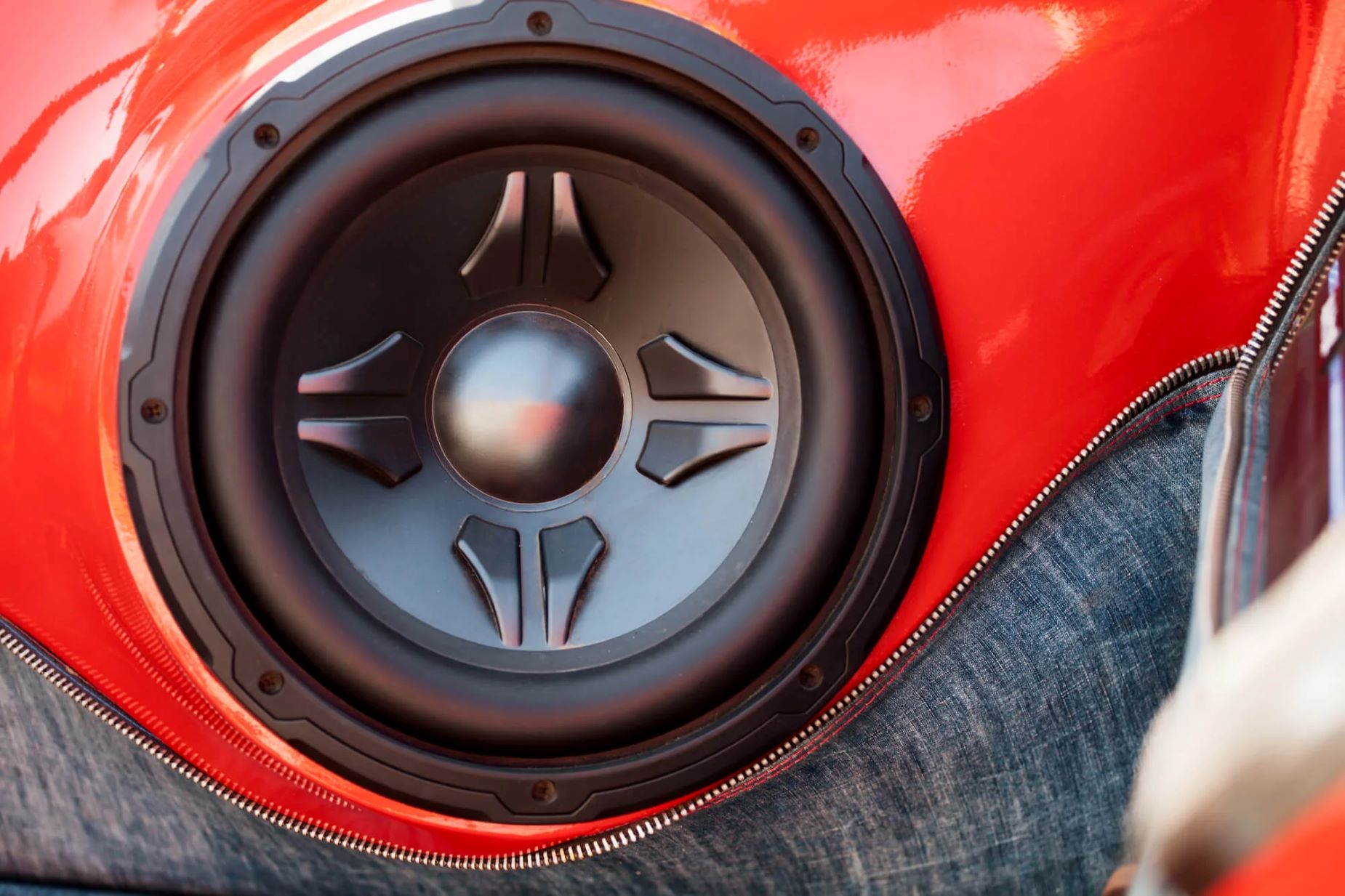Home>Devices & Equipment>Streaming>How The Music Modernization Act Will Help Artists Get Paid More From Streaming


Streaming
How The Music Modernization Act Will Help Artists Get Paid More From Streaming
Published: March 7, 2024
Learn how the Music Modernization Act will revolutionize streaming for artists, ensuring they get paid more for their music. Understand the impact on royalties and streaming revenue.
(Many of the links in this article redirect to a specific reviewed product. Your purchase of these products through affiliate links helps to generate commission for AudioLover.com, at no extra cost. Learn more)
Table of Contents
Introduction
The music industry has undergone a significant transformation in recent years, largely due to the rise of digital streaming platforms. While these platforms have revolutionized the way music is consumed and shared, they have also presented challenges for artists seeking fair compensation for their work. In response to these challenges, the Music Modernization Act was introduced to address the complex landscape of music licensing and royalty distribution in the digital age.
The Music Modernization Act represents a pivotal shift in the way music creators are compensated for their contributions. By modernizing the music licensing system, this legislation aims to ensure that artists, songwriters, and producers receive fair and timely payment for their work in the digital streaming era. This landmark legislation has the potential to reshape the music industry by fostering a more equitable and transparent environment for all stakeholders involved in the creation and distribution of music.
As we delve into the intricacies of the Music Modernization Act, it becomes evident that its implications extend far beyond the realm of policy and regulation. This act has the power to empower artists and songwriters, providing them with the opportunity to earn a more sustainable income from their creative endeavors. By understanding the key provisions and impact of this legislation, artists can gain valuable insights into how it may shape the future of their livelihoods in an ever-evolving music industry landscape.
The Music Modernization Act represents a significant step towards addressing the longstanding challenges faced by music creators in the digital age. As we explore the intricacies of this legislation, it becomes clear that its implications are poised to reshape the dynamics of the music industry, offering new opportunities for artists to thrive in an era defined by digital innovation and streaming platforms.
What is the Music Modernization Act?
The Music Modernization Act (MMA) is a landmark piece of legislation that was signed into law in the United States in October 2018. This comprehensive bill represents a significant overhaul of the music licensing and royalty payment system, particularly in the context of digital streaming services. The primary objective of the MMA is to address the complexities and inefficiencies that have long plagued the music industry, particularly in the digital era, and to ensure that music creators are fairly compensated for their work.
One of the key components of the Music Modernization Act is the establishment of a new entity called the Mechanical Licensing Collective (MLC). The MLC serves as a centralized, independent organization responsible for administering mechanical licenses for musical compositions used in digital streaming services. This streamlined approach aims to simplify the licensing process and improve the accuracy of royalty distributions, ultimately benefiting songwriters and music publishers.
Furthermore, the MMA introduces reforms to the process of determining mechanical royalty rates, aiming to create a more equitable framework for compensating songwriters and copyright owners. By modernizing the rate-setting process and ensuring greater transparency, the legislation seeks to address longstanding disparities and ensure that creators receive fair compensation for the use of their musical works.
In addition to these provisions, the Music Modernization Act also includes measures to improve the way in which music creators are compensated for pre-1972 sound recordings, addressing historical gaps in royalty payments for older musical works. This aspect of the legislation reflects a concerted effort to rectify past injustices and ensure that all artists, regardless of the era in which their music was created, receive appropriate compensation in the digital streaming landscape.
Overall, the Music Modernization Act represents a pivotal step towards modernizing the music industry's licensing and royalty payment infrastructure. By addressing longstanding inefficiencies and disparities, the legislation aims to create a more equitable and transparent environment for music creators, fostering a sustainable ecosystem in which artists, songwriters, and copyright owners can thrive.
How does the Music Modernization Act impact artists?
The Music Modernization Act (MMA) has a profound impact on artists, ushering in a new era of transparency, fairness, and potential for increased earnings in the digital streaming landscape. By addressing longstanding challenges and inefficiencies in the music industry, the MMA directly influences artists in several key ways.
Fair Compensation
One of the most significant impacts of the MMA on artists is the potential for fairer compensation. Under the new legislation, the establishment of the Mechanical Licensing Collective (MLC) streamlines the process of obtaining mechanical licenses for musical compositions used in digital streaming services. This simplification not only benefits songwriters and music publishers but also ensures that artists receive more accurate and timely royalty payments for the use of their works.
Improved Royalty Distribution
The MMA's reforms in determining mechanical royalty rates and the creation of a more transparent framework for royalty distributions directly benefit artists. By modernizing the rate-setting process and enhancing transparency, the legislation aims to rectify historical disparities and ensure that artists receive their rightful share of royalties from digital streaming platforms.
Protection of Pre-1972 Sound Recordings
The impact of the MMA extends to artists with pre-1972 sound recordings, addressing historical gaps in royalty payments for older musical works. This provision ensures that artists from previous eras receive appropriate compensation for their contributions, reflecting a commitment to honoring the creative endeavors of all artists, regardless of the era in which their music was created.
Streamlined Licensing Process
The streamlined licensing process facilitated by the MMA not only benefits songwriters and music publishers but also simplifies the administrative burden on artists. By providing a more efficient and centralized mechanism for obtaining mechanical licenses, the legislation reduces complexities and administrative hurdles, allowing artists to focus on their creative pursuits while ensuring that they receive fair compensation for the use of their music.
In essence, the Music Modernization Act significantly impacts artists by fostering a more equitable and transparent environment for compensation in the digital streaming era. By addressing historical disparities, streamlining licensing processes, and ensuring fair compensation for all artists, the MMA represents a pivotal step towards empowering artists and songwriters to thrive in an evolving music industry landscape.
Benefits of the Music Modernization Act for artists
The Music Modernization Act (MMA) heralds a new era of benefits for artists, offering a range of transformative advantages that directly impact their livelihoods and creative pursuits in the digital streaming landscape.
Fair Compensation and Transparency
One of the primary benefits for artists under the MMA is the promise of fair compensation and increased transparency in royalty payments. The establishment of the Mechanical Licensing Collective (MLC) streamlines the process of obtaining mechanical licenses for musical compositions used in digital streaming services. This simplification not only benefits songwriters and music publishers but also ensures that artists receive more accurate and timely royalty payments for the use of their works. By modernizing the rate-setting process and enhancing transparency, the legislation aims to rectify historical disparities and ensure that artists receive their rightful share of royalties from digital streaming platforms.
Improved Royalty Distribution
The MMA's reforms in determining mechanical royalty rates directly benefit artists by providing a more equitable framework for compensating songwriters and copyright owners. This overhaul of the rate-setting process aims to address longstanding disparities and ensure that artists receive fair compensation for the use of their musical works. By streamlining the royalty distribution process, the MMA empowers artists to receive their rightful earnings in a more efficient and transparent manner, providing a significant boost to their financial well-being.
Protection of Pre-1972 Sound Recordings
The MMA's provisions for pre-1972 sound recordings offer a crucial benefit to artists from previous eras. By addressing historical gaps in royalty payments for older musical works, the legislation ensures that artists receive appropriate compensation for their contributions, regardless of the era in which their music was created. This aspect of the MMA reflects a commitment to honoring the creative endeavors of all artists and provides a vital source of income for those whose works have endured through the decades.
Streamlined Licensing Process
The streamlined licensing process facilitated by the MMA not only benefits songwriters and music publishers but also simplifies the administrative burden on artists. By providing a more efficient and centralized mechanism for obtaining mechanical licenses, the legislation reduces complexities and administrative hurdles, allowing artists to focus on their creative pursuits while ensuring that they receive fair compensation for the use of their music. This streamlined approach fosters a more conducive environment for artists to navigate the intricacies of music licensing, ultimately empowering them to focus on their artistic endeavors with the assurance of fair compensation.
In essence, the Music Modernization Act brings forth a multitude of benefits for artists, ranging from fair compensation and improved royalty distribution to the protection of pre-1972 sound recordings and a streamlined licensing process. These transformative advantages not only enhance the financial well-being of artists but also empower them to navigate the digital streaming landscape with greater confidence and transparency, fostering a more sustainable and equitable environment for all music creators.
Challenges and criticisms of the Music Modernization Act
While the Music Modernization Act (MMA) represents a significant step forward in addressing the complexities of music licensing and royalty distribution, it is not without its challenges and criticisms. As with any comprehensive legislation, the MMA has sparked debates and raised concerns within the music industry and among various stakeholders. Understanding these challenges and criticisms is essential for gaining a holistic perspective on the implications of the MMA.
Complexity of Implementation
One of the primary challenges associated with the MMA is the complexity of its implementation. The transition to a new framework for music licensing and royalty distribution requires significant coordination and adaptation across the industry. From the establishment of the Mechanical Licensing Collective (MLC) to the overhaul of rate-setting processes, the practical implementation of the MMA's provisions presents a formidable task. This complexity may pose challenges for stakeholders as they navigate the transition to the new system, potentially leading to administrative hurdles and uncertainties during the initial phases of implementation.
Impact on Small and Independent Artists
Critics of the MMA have raised concerns about the potential impact of the legislation on small and independent artists. While the MMA aims to create a more equitable environment for music creators, some argue that the administrative and financial burdens associated with compliance with the new licensing and royalty distribution framework may disproportionately affect smaller artists and independent musicians. The need for resources and expertise to navigate the intricacies of the new system could pose challenges for artists operating with limited means, potentially widening existing disparities within the industry.
Unresolved Issues in Royalty Distribution
Despite the reforms introduced by the MMA, some critics have highlighted unresolved issues in royalty distribution, particularly concerning the accurate identification and payment of rights holders. The complexities of music ownership and the challenge of tracking and attributing royalties to the appropriate creators remain significant concerns. While the MMA seeks to improve transparency and accuracy in royalty distributions, the inherent complexities of the music industry may present ongoing challenges in ensuring that all rights holders receive fair and timely compensation for their contributions.
Potential for Unintended Consequences
Another criticism of the MMA revolves around the potential for unintended consequences stemming from the overhaul of music licensing and royalty distribution processes. Critics argue that the sweeping changes introduced by the legislation may lead to unforeseen outcomes, impacting various segments of the industry in ways that were not fully anticipated during the drafting of the bill. The potential for unintended consequences underscores the need for ongoing evaluation and adaptation as the MMA's provisions are implemented and integrated into the fabric of the music industry.
In essence, while the Music Modernization Act represents a significant milestone in addressing the challenges of music licensing and royalty distribution, it is not immune to criticisms and challenges. The complexity of implementation, potential impact on small and independent artists, unresolved issues in royalty distribution, and the potential for unintended consequences are among the key areas of concern raised by critics and industry stakeholders. Addressing these challenges and criticisms will be essential in ensuring that the MMA achieves its intended objectives while fostering a more equitable and sustainable environment for all music creators.
Conclusion
The Music Modernization Act (MMA) stands as a pivotal milestone in the evolution of the music industry, signaling a transformative shift towards fairness, transparency, and sustainability for music creators in the digital streaming era. By addressing longstanding challenges in music licensing and royalty distribution, the MMA has the potential to reshape the dynamics of the industry, offering a host of benefits while also prompting critical discussions and considerations.
As the MMA's provisions are implemented, it is essential for stakeholders to navigate the complexities of the new framework with a keen focus on equitable outcomes for all artists, songwriters, and copyright owners. The promise of fair compensation, improved royalty distribution, and the protection of pre-1972 sound recordings represents a beacon of hope for artists, offering the prospect of a more sustainable livelihood and recognition of their creative contributions.
However, it is crucial to acknowledge and address the challenges and criticisms surrounding the MMA, including the complexity of implementation, potential impact on small and independent artists, unresolved issues in royalty distribution, and the potential for unintended consequences. These concerns underscore the need for ongoing dialogue, adaptation, and proactive measures to ensure that the MMA's objectives are realized without inadvertently exacerbating disparities or creating undue burdens for music creators.
In the midst of these considerations, the overarching goal of the MMA remains clear: to foster an environment where music creators can thrive, secure in the knowledge that their contributions are valued and fairly compensated. As the music industry continues to evolve, the MMA serves as a testament to the collective commitment to nurturing a landscape where creativity flourishes, and artists are empowered to share their art with the world while reaping the rewards of their labor.
Ultimately, the impact of the MMA extends beyond the realm of policy and regulation; it resonates deeply with the aspirations and livelihoods of artists, songwriters, and creators who form the heart and soul of the music industry. By embracing the opportunities presented by the MMA while proactively addressing its challenges, the industry can chart a course towards a future where music creators are celebrated, supported, and empowered to shape the cultural landscape for generations to come.











